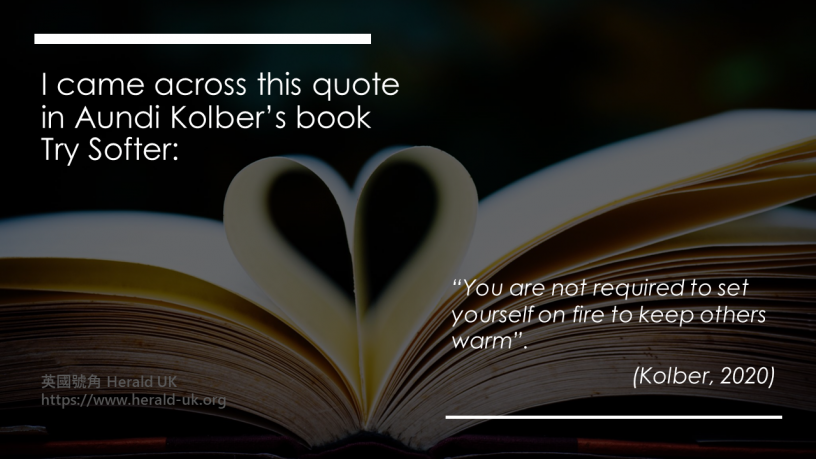Wynne C
“That’s okay, I’ll do it!”, “Yes sure, no problem!”, “Alright, leave it with me.” How often do you find yourself saying these words? Many of us are either first or second-generation Chinese immigrants, and it is often programmed into our minds that we will do anything necessary for survival. Most of the time, this is an excellent driving force for us to achieve our goals and realise our dreams.
The flip side to this mentality is that we tend to feel compelled to say yes to whatever comes our way or accept whatever is handed to us. The most common example is how we respond when we encounter casual racism in our everyday lives. Can you remember any incidents where you were treated differently because of your skin colour? Even though they may have left us angry or upset, we may not have spoken up against the perpetrators. We are usually taught by our elders to mind our own business, keep out of the way and not stir up trouble. We do not want to be seen as the “difficult ones”.
As a result, many of us say yes when we actually mean no. This can prove to be very damaging, not just for ourselves but also in our friendships, relationships and working environments.
Five years ago, I started out as a brand-new doctor on a hospital ward. I was given a lot of responsibility and found myself barely having ten minutes for lunch in the middle of the day. It was extremely busy and I was on the verge of burnout. When I reflect now on the reasons why it was so difficult, I realised I had a very big problem in saying no. For example, if I was already overwhelmed by tasks, and a colleague approached me to help him or her with something, my immediate response was, “Yes sure”. I was on auto-pilot in the way I was eager to please. These incidents would happen over and over again, and I had not realised how my inability to say “no” or even “wait” contributed to my lack of resilience in that working environment. I dreaded the thought of going to work after a weekend, and I even contemplated a complete career change. Thankfully along the way, I learnt the importance of saying no, and that has helped me greatly in my career and relationships with my colleagues.
You may find it hard to believe that saying no to people could actually be beneficial for maintaining connection with others.
I know of a friend Samantha, who has been subconsciously taught growing up to be good and submissive to people around her in order to earn love and favour. When she married her husband and moved in with his parents, she tried her very best to be a good daughter-in-law. She especially went the extra mile for her mother-in-law. Sadly, her good efforts were not well received or appreciated, but instead taken advantage of. She was roped to do many things outside of her comfort zone for the family and beyond. Although she did not want to accept these responsibilities due to other commitments, she felt she could not say no. She was also frequently spoken down to by her in-laws, yet she felt unable to speak up for herself. As the years passed by, Samantha continued to play the role of the “good, submissive” daughter-in-law. Yet deep anger inside and resentment was simmering. She eventually lost the ability to have any meaningful connection with them due to the resentment she had denied and suppressed over the years.
Our voice matters just as much as the next person. Yes, you read that right! You have a voice, and it matters! You also have a choice. When we identify the safe limits of what we are willing or not willing to accept, this is called boundaries. It is saying “I’m actually not available right now. Can you call later?” instead of “Yes I’m free. How can I help?” when you are busy at work. It is saying, “I am planning to rest this weekend, but thank you for asking” instead of “Yes sure, I can make time for this” when you are exhausted and invited to a party.
I came across this quote in Aundi Kolber’s book Try Softer, “You are not required to set yourself on fire to keep others warm” [1].
The bottom line is:
You have a choice
Your voice matters
Set safe boundaries
Be kind to yourself
[1] Kolber, A. (2020) Try Softer: A Fresh Approach to Move Us Out of Anxiety, Stress, and Survival Mode–And Into a Life of Connection and Joy, Tyndale House Publishers.











